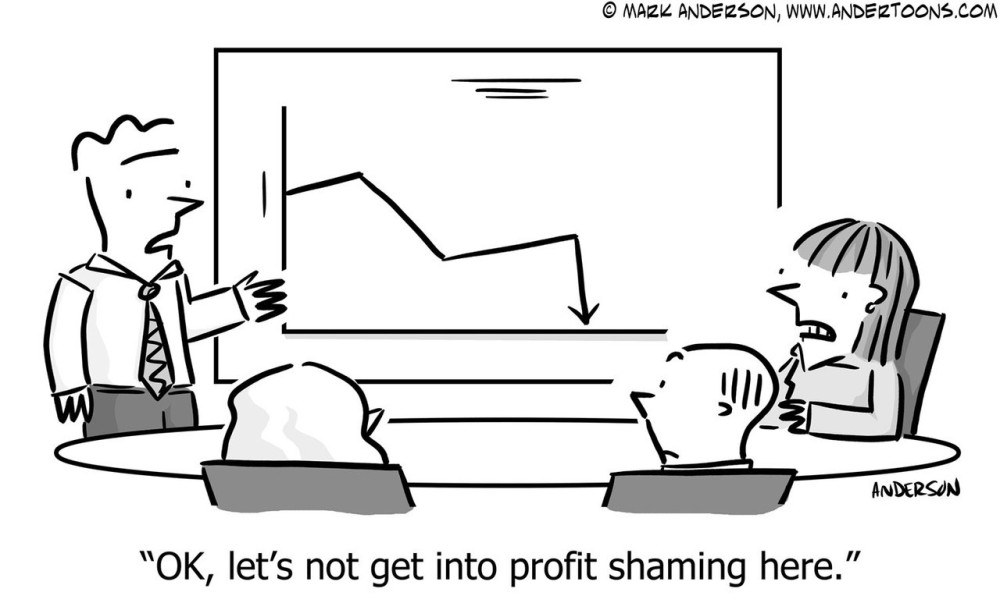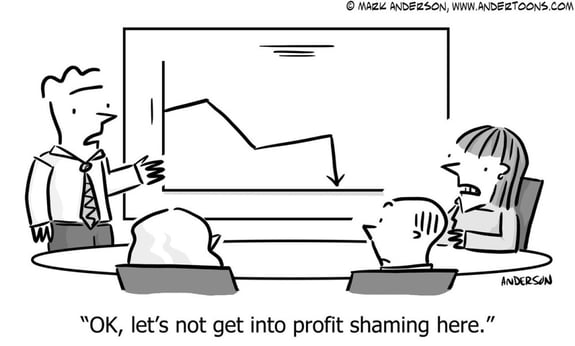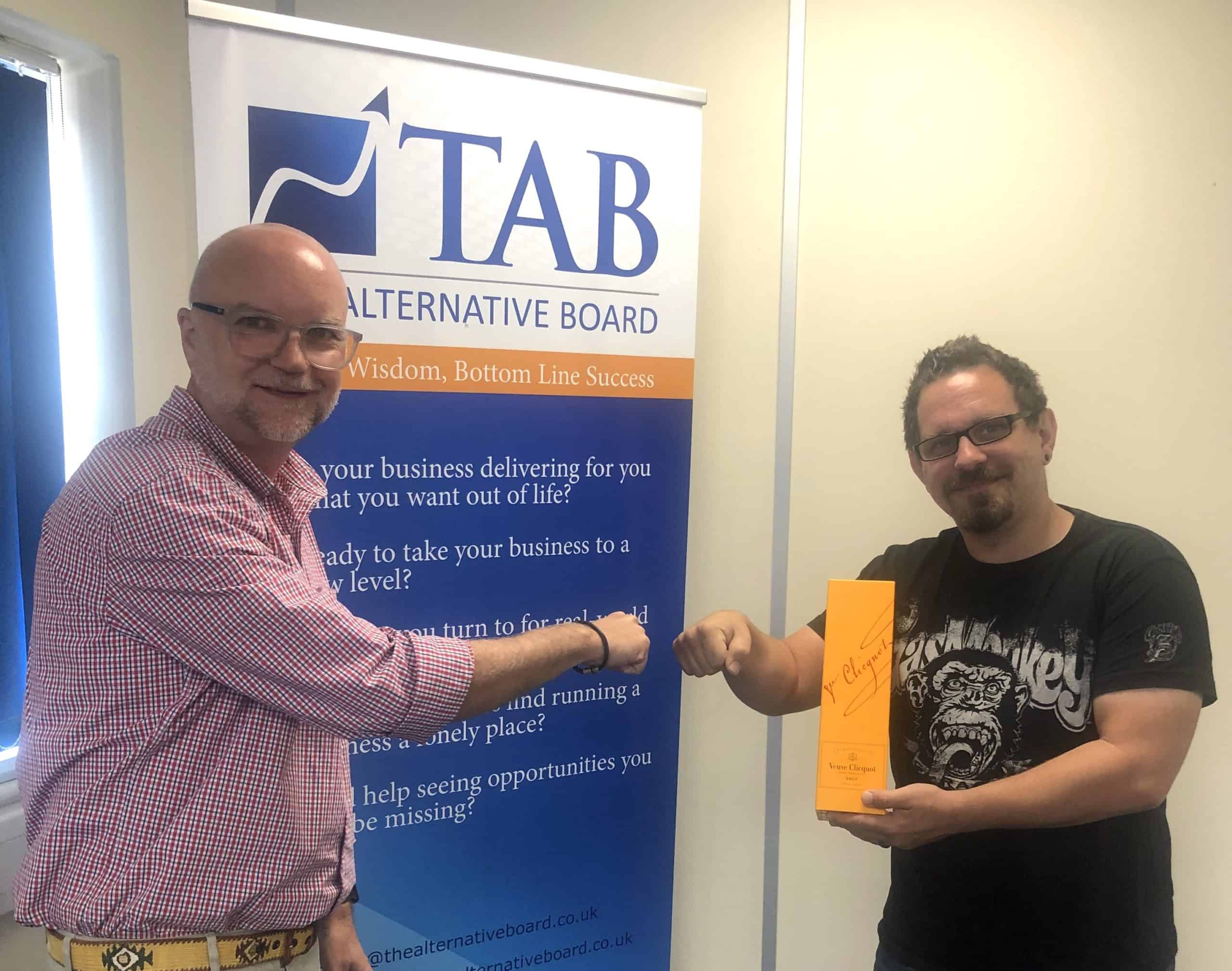
Does profit matter any more?
by Ed Reid
Listen to Audio Version:
That seems a ridiculous headline. Of course profit matters. Of course profit will always matter. Without your business making a profit, how are you going to pay the mortgage? Not to mention all the other mortgages that now depend on you.
But bear with me. I think there are some worrying straws in the wind…
Flipping briefly through the news headlines on Wednesday lunchtime two stories struck me.
This month will see the Wall Street debut of Uber, which is generally expected to be valued at $90bn – that’s around £70bn. But Uber – as the eager shareholders queue up – now says it ‘may never make a profit.’

Meanwhile here in the UK, hapless Transport Minister Chris Grayling has cancelled the contracts with the ferry companies that he’d put in place in case of a No Deal Brexit. The cost to the taxpayer? Just £50m…
Uber, Slack and Pinterest
Uber was founded in March 2009. We’ve all taken an Uber, we all jealously guard our 5* – or close to 5* – passenger rating. To say that the company has ‘disrupted’ the taxi and private hire industry is one of the world’s greatest understatements and its IPO has been long awaited. Early estimates of $120bn have been scaled back to $90bn. But as above, that’s £70bn – or more than 15 times the value of Marks and Spencer’s which, despite its recent problems, still made a significant profit in its last six months’ trading.
But now Uber says it ‘may not achieve profitability.’ The company says that annual sales rose to $11.2bn and losses narrowed to $3bn. But, it warned, it expects operating expenses to “increase significantly.”
Meanwhile, shares in Pinterest – best described as a ‘social scrapbook’ – soared 28% on its first day of trading, valuing the company at $16bn. The good news is that last year losses at Pinterest fell to $62m, down from $181m two years previously. But the company is heavily dependent on advertising and warned that a downturn in the economy could harm it. In fact, Pinterest warned that it would “incur operating losses in the future and may never achieve or maintain profitability.”
And then we come to Slack. Most of us have used – or seen someone use – Slack, which does a handy job of replacing intra-office e-mail. What do you know? Slack is filing for an IPO and expects to be valued at $7bn. The good news is that revenue is growing rapidly – up 82% to $400m in its latest financial year. But is it making a profit? What do you think? Losses for the last year were $139m. Like so many tech firms, Slack is spending money to make money. Or to drive revenue growth…
No wonder they’re called unicorns
As many of you know, a ‘unicorn’ is the term applied to a tech start-up that’s valued at a billion dollars. A unicorn is also a mythical animal and you just have to wonder if some of these valuations have far more to do with myth than reality.
Call me old-fashioned but I thought the purpose of a business was to make profits? To do it ethically, to give back to the local community, to grow the people within your company: but at the end of the day have the bottom line in black, not red. Damn it, in the olden days you bought shares – invested in companies – because they made a profit and paid a dividend to their shareholders.
But increasingly the businesses that make the news seem to be valued on fashion and potential. On market share or revenue growth or potential earnings in 2023. And I think that’s a worrying trend…
A short detour into the public sector
At the beginning of last year, Carillion collapsed. Despite the warning signs, Government ministers continued to ply it with contracts. The inevitable eventually happened – and when Carillion went bust it owed money to 30,000 small businesses.
Now we have Crossrail delayed until 2020 at the earliest and a massive overspend is looking far more likely. I doubt there is a person reading this blog who expects HS2 to be delivered on time and within budget. Maybe there was a reason HS2 hired 17 PR agencies…
And as I mentioned above, Chris Grayling has just cancelled the No Deal contracts with the ferry companies, landing the taxpayer – you and me – with a £50m bill for which we have received nothing at all.
Why all this matters
As every single member of TAB UK knows, Tesco do not accept market share or your projected 2023 earnings in exchange for bread and cheese. Neither do projected earnings pay wages.
Why does profit matter – apart from the fact that it buys bread and cheese and pays wages? It matters because profit is how you keep score. It’s how you say, ‘we’re doing this right: ‘we’re doing it better than last year’ and ‘we’re competent to run the business.’
When Mags and I were buying TAB UK the organisations who supplied the funds were rightly concerned with two things. Could we service the borrowing – that is, could we generate the necessary cash – and would we make a profit?
That is something that certainly feeds through to the TAB boards. Profit, cash flow and margins are the key metrics. And if yours are moving in the wrong direction then your colleagues around the table will be very quick to ask what you’re doing about it.
But once we get away from the idea that profit matters then things start to slip – and slip quickly. Profit goes hand in hand with fiscal responsibility. Does Wall Street care that Uber, Slack and Pinterest are losing hundreds of millions of dollars and may never make a profit? Apparently not.
And more and more we see the same attitude in the public sector. Chris Grayling has just tossed away £50m of our money. Well, let’s keep the maths simple: assuming a nurse is paid £25,000 a year that £50m would have paid for 2,000 nurses.
But here we are, increasingly slipping into a parallel universe where profit and fiscal responsibility seem unimportant. Someone needs to stand up and say that profit will always matter – before another 30,000 small businesses pay the price.
Related articles

TAB East Midlands' members join forces
TAB Members, Rob Watson and Holly Daulby join forces to create Antiques Boutique, a new online antiques marketplace.

The importance of closely managing your cash flow
Liz Horsey, TAB Facilitator in Derby and the East Midlands talks about the importance of closely managing your cash flow and the steps to take to do so.

5 traits of an effective TAB Member
What helps business owners to get the most from their TAB membership? Here are five traits of an effective TAB member.





